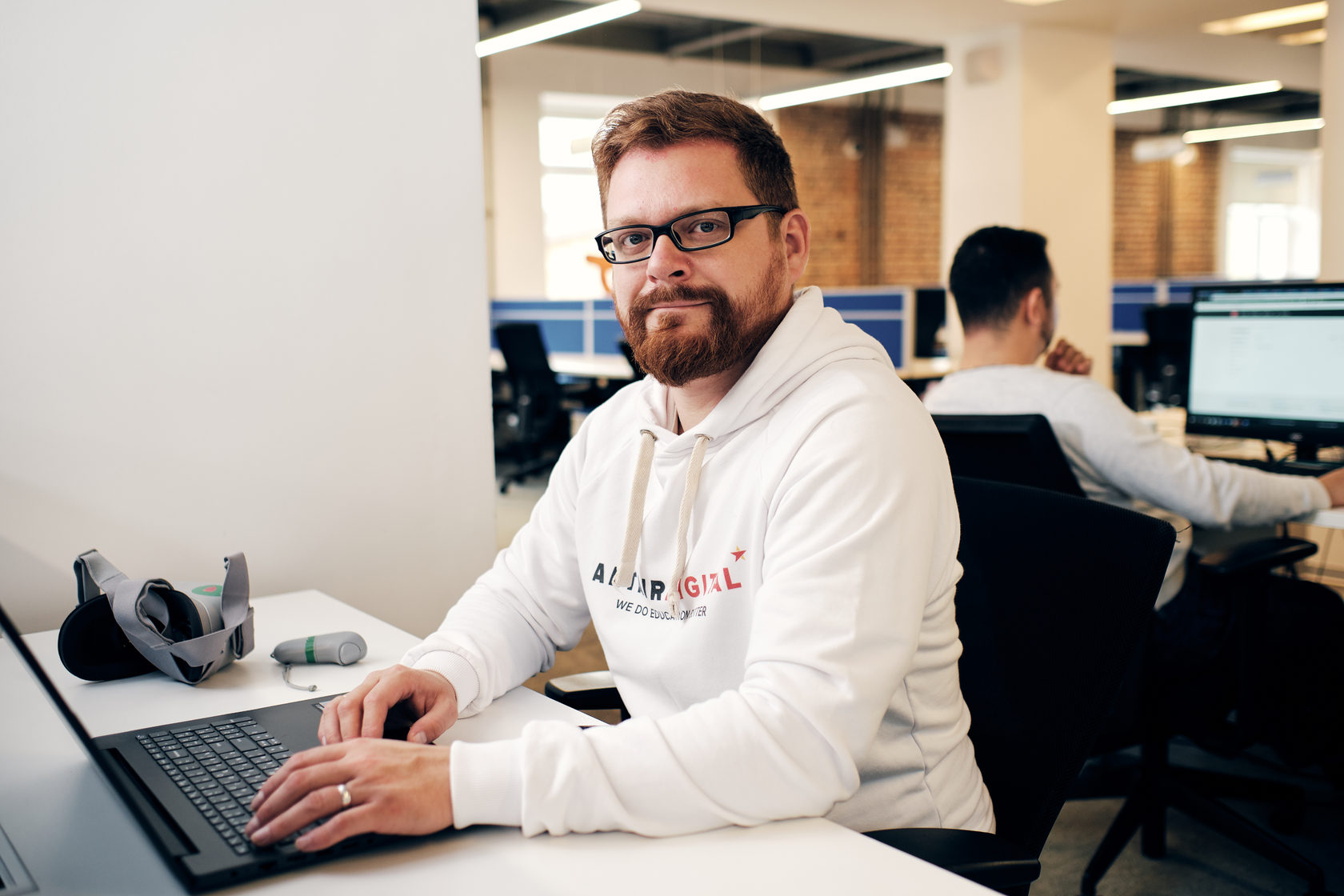Before the Altairika Virtual Encyclopedia, you were working with mobile Mobile Planetariums. Why now have you switched to Virtual Reality lessons for children?
When we were engaged in Mobile Planetariums, our task was to stimulate interest in education for children by showing science in a bright colorful format. Accordingly, philosophy has not changed: we make science clear and bright. Over time, the mission has been supplemented by the fact that we can bring it to any part of the world. VR only helps us to achieve our goal.
Virtual reality is perceived by many as entertainment. Why do you think education in virtual reality format is a good product for business?
VR is not a game industry. Thinking about games in VR, people imagine a picture from the movie "Ready Player One", it will not become a reality for a few more years. Right now, the biggest demand for VR is in education. These are trainings for line personnel, corporate training, training on complex systems, for example, in medicine. The niche of children's education remains unsaturated. Those players that are on the market, obviously, are not enough to meet the demand. At the same time, the demand itself is not fully formed. We are still forming a demand — a visually interesting education. VR only helps us to achieve our goal.
The impact of VR on human health has not yet been studied. What will you do if the World Health Organization imposes severe restrictions on use and sale?
In terms of dystopia, people may start living in virtual reality instead of real reality. Our goal is not to replace the real world with virtual reality; our goal is to see processes that are not available in the real world. Classes using VR are accompanied by offline activities: learning theory, working with children after the session. And if there are strict restrictions on use and sale — we will meet these standards. In my childhood, there was a Dendi game console. The older generation was afraid that it spoils the TV and children's vision, time has shown that this is prejudices. Being afraid of VR is like being afraid of Dendi before.
What do you see as the prospects for VR technology? How will virtual reality help to improve the reality of the present?
You can see the invisible, do what you cannot do in reality. The value of our product is that the child remembers the subject, learns it and lives it out. The main meaning of VR — we can look into what is inaccessible to ordinary vision (in the microcosm of biology, in the macrocosm of astronomy), inside the bodies (anatomy, chemistry), inside the process (chemistry and physics). And we can take part everywhere, this is the main meaning and task of virtual reality in education.
Now many companies are starting to engage in educational content in VR. Are you not afraid of increased competition?
Competition exists for those who work badly. We work in the blue ocean strategy. We do things that no one does but us. Even when we create products that have analogues, we take them out of the competitive field. I believe that if there is good work and quality service — competitors can't do much. Competition is an offer of something similar with more interesting characteristics, whether it's service or content. To compete, we need not just to develop something in virtual reality, but to have an original philosophy. We have a unique set of business models, content and scope. It is impossible to copy us. As for the saturation of the market, I'll be glad to see it. The market has a lot of space to grow. And we now need more companies to explain to schools, parents, children that education should be bright. The competition that I am afraid of is the emergence of cheap analogues that defame the notion of immersion education.
What is the peculiarity of the Altairika franchise?
The franchise is a big puzzle of individual aspects. Flexible business model: mobile or stationary, company mission, unique content, original additional materials, quick start and quick payback point, territorial exclusivity, constant support of development department, open franchise community and wide geography. The uniqueness of the puzzle and ensures our exclusivity.
Your franchisees work both in Russia and around the world. What is the difference between doing business in Russia and doing business internationally?
When we were going to bring the Virtual Encyclopedia to the international market, we presented it as a turnkey business, because we thought that we could not be experts in doing business in other countries. It turned out that in many European countries, such as Italy, Greece, France, Belgium, the Netherlands, a mobile model is absolutely normal. It was an incredible insight. Children all over the world need the same thing: high-quality, clear information about science. The school system in all countries leaves much to be desired and every parent wants to give their child the best possible education.
How do you plan to develop the Virtual Encyclopedia product?
Our next goal is to provide children with skills for concrete actions. In physics and chemistry, VR is able to replace expensive equipment. Most chemical experiments are dangerous and require difficult conditions to implement. In virtual reality, we can create a full-fledged laboratory where children and adults can mix anything with anything and you can blow anything up without harming the experimenter.
Perfect business, what does it look like for you?
It's a business where there's always room to develop. There's no endpoint. There's only an endless process of development. The movement itself is the goal. It's a business where there's always room for a step forward. Technology is changing, and the mission, goals and objectives remain. In an ideal business, there is no limit to perfection.
